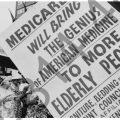Mrs. Peňa is 66 years old, has coverage under an employer plan, and will retire next year. She heard she must enroll in Part B at the beginning of the year to ensure no gap in coverage. What can you tell her?
c. She may enroll at any time while she is covered under her employer plan, but she will have a special eight-month enrollment period after the last month on her employer plan that differs from the standard general enrollment period, during which she may enroll in Medicare Part B.
Mrs. Peňa, being 66 years old, has already passed her initial enrollment period for Medicare, but since she is still covered under her employer’s group health plan, she can delay enrolling in Part B without facing a late enrollment penalty.
Once she retires and her employer health plan coverage ends, she will enter a special enrollment period (SEP) that lasts for eight months. During this period, she can enroll in Medicare Part B without any late enrollment penalties. This special enrollment period begins the month after her employment and employer coverage end, so she can enroll without any gap in coverage.
It’s crucial for Mrs. Peňa to understand this special enrollment period to ensure she transitions smoothly from her employer’s plan to Medicare without any penalties or coverage gaps.





